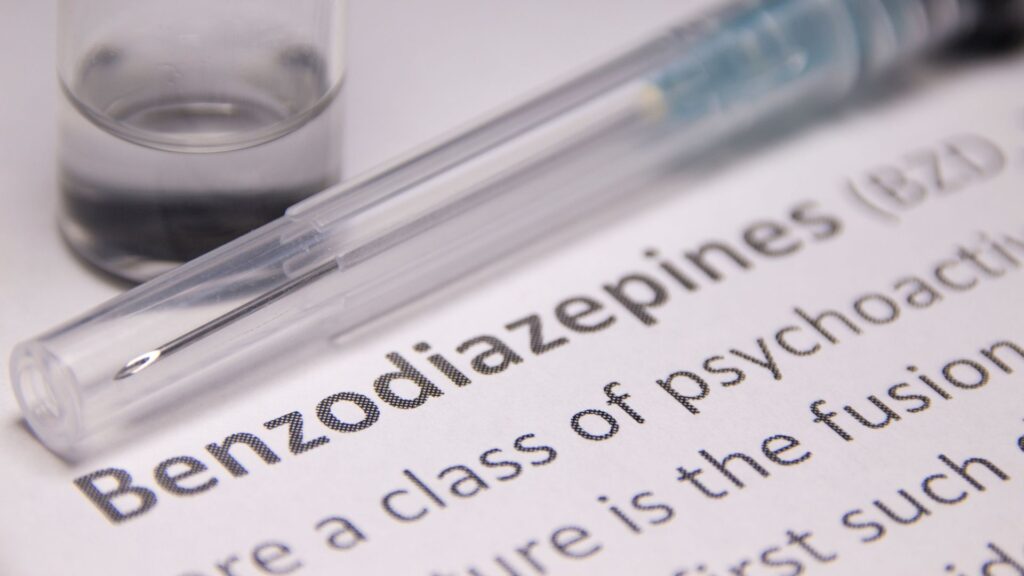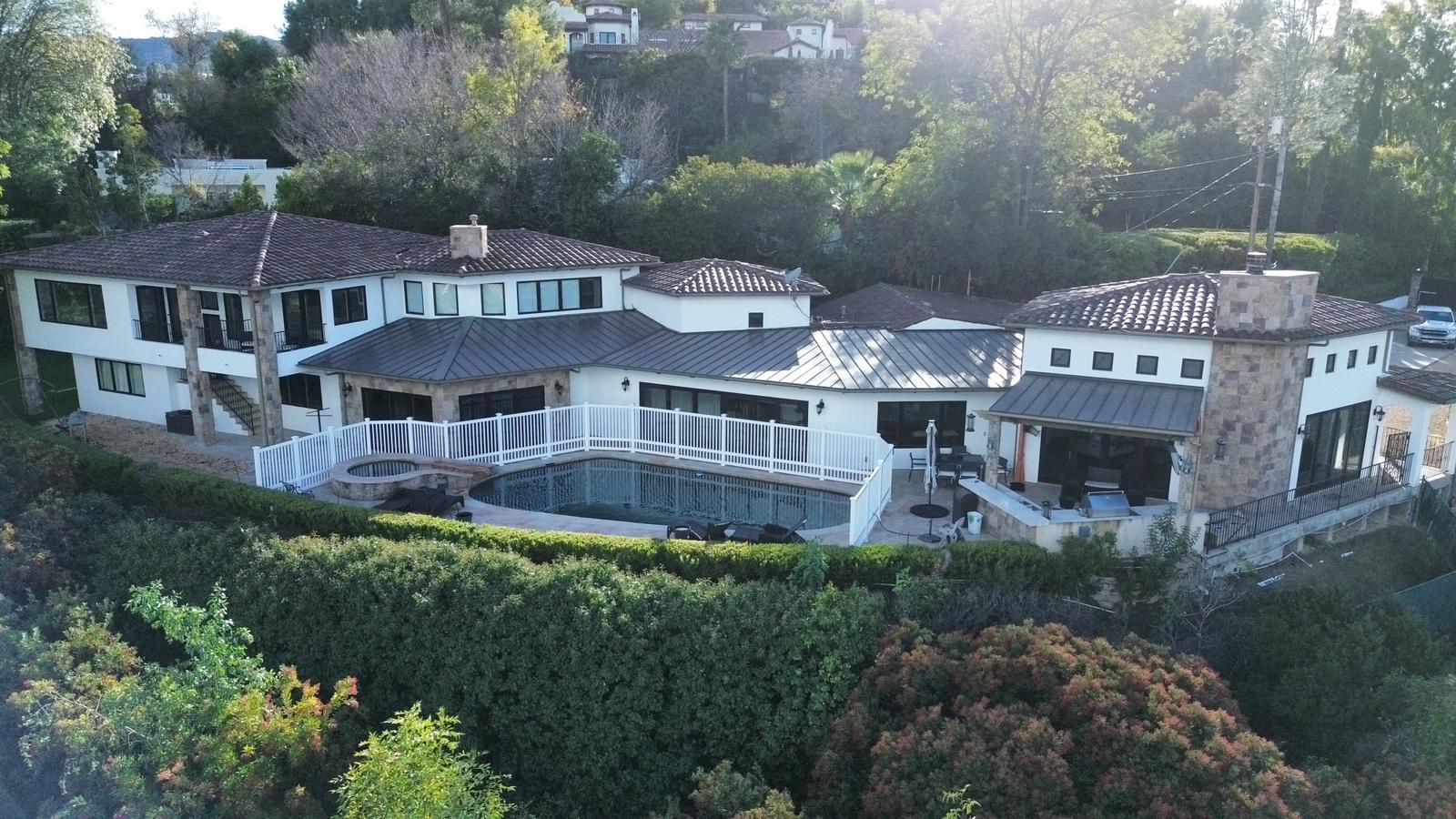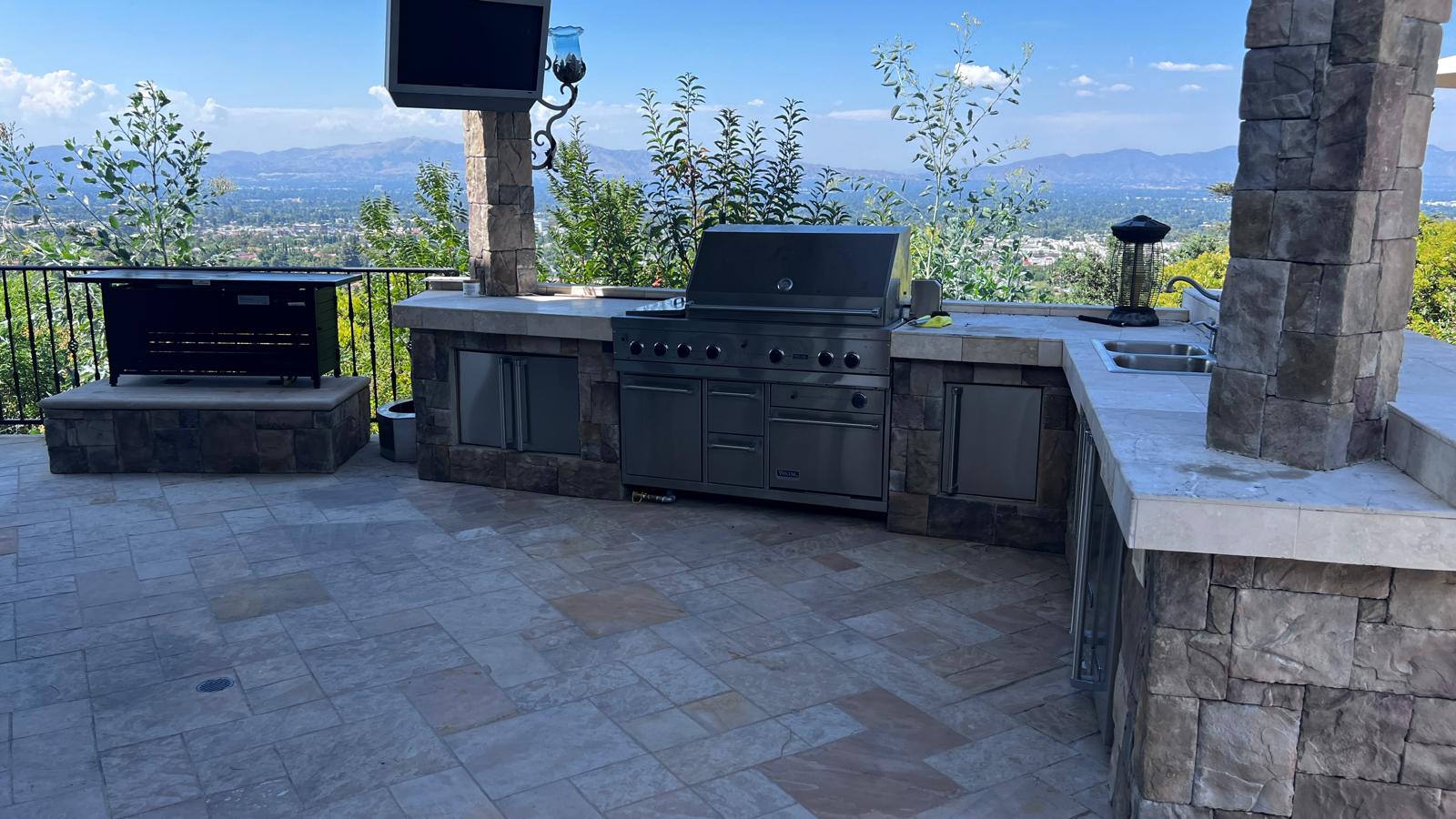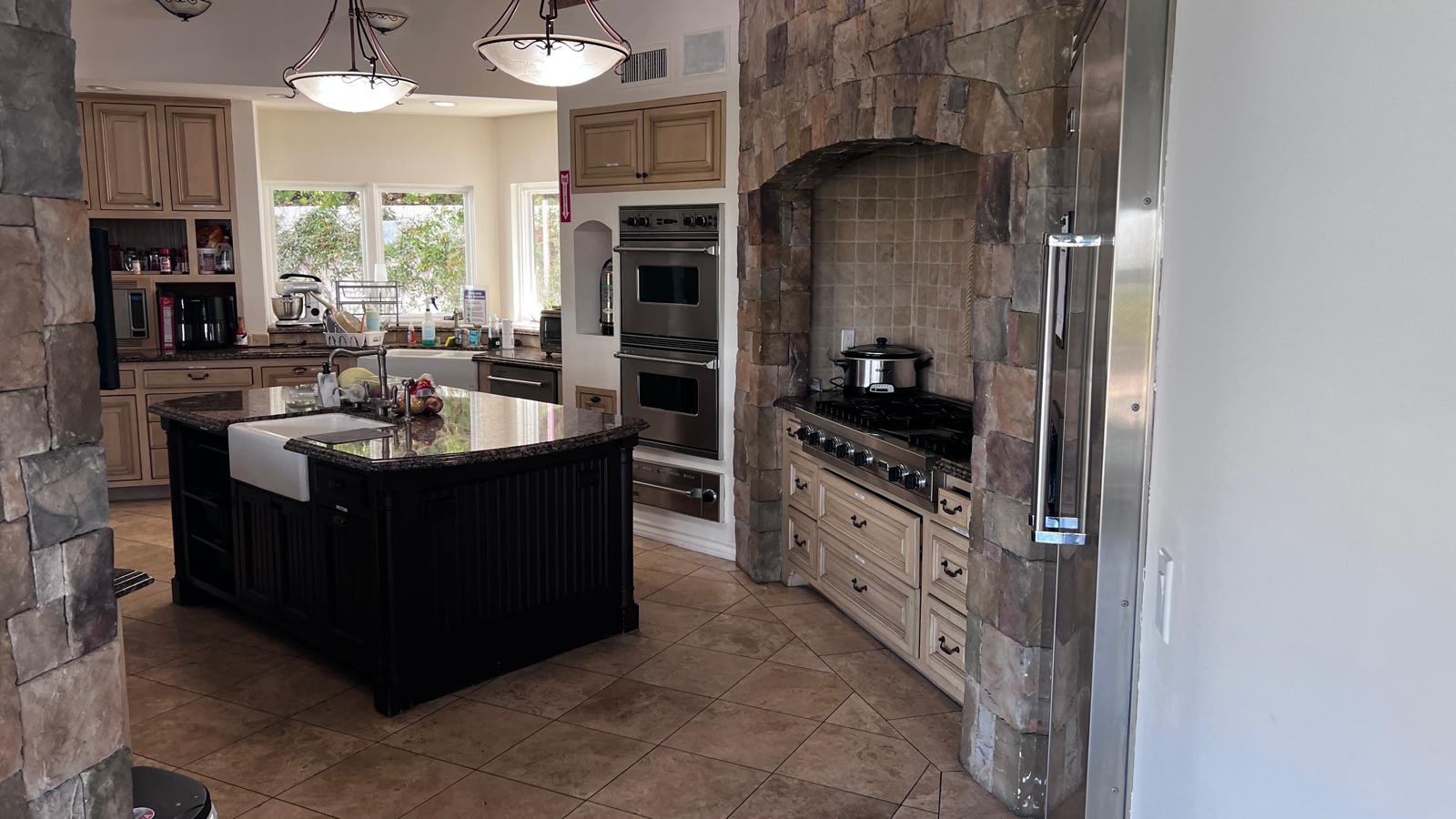After three decades of working directly with individuals struggling to break free from benzodiazepine dependence, I can tell you with absolute certainty that the decision to seek professional detoxification represents one of the most courageous steps a person can take. The complexity of benzodiazepine withdrawal demands specialized medical expertise, careful monitoring, and a level of clinical precision that simply cannot be replicated outside a dedicated treatment environment. Here in Encino, California, we have witnessed thousands of successful recoveries, but each journey begins with understanding what lies ahead and why professional intervention is not just recommended—it is medically necessary.
Understanding Benzodiazepine Dependence and Why Medical Detox Matters

Benzodiazepines occupy a unique and troubling position in modern medicine. Prescribed to millions of Americans for anxiety disorders, panic attacks, insomnia, and seizure management, medications like Xanax, Klonopin, Ativan, and Valium were originally marketed as safer alternatives to barbiturates. These medications work by enhancing the effect of gamma-aminobutyric acid (GABA), the brain’s primary inhibitory neurotransmitter, essentially slowing down neurological activity to produce calming effects.
The problem emerges when the brain adapts to this artificial enhancement. Within weeks of regular use, neural pathways begin restructuring themselves around the presence of benzodiazepines. What started as occasional relief from anxiety can transform into physical dependence, where the body requires the medication simply to maintain baseline functioning. This is not a matter of willpower or moral failing—it represents a fundamental neurochemical adaptation that affects anyone exposed to these substances for extended periods.
When someone attempts to stop benzodiazepines abruptly, the consequences can be severe and potentially life-threatening. Unlike opioid withdrawal, which is extremely uncomfortable but rarely fatal, benzodiazepine withdrawal syndrome can trigger seizures, delirium, dangerous blood pressure fluctuations, and profound psychiatric disturbances. This is precisely why benzodiazepine detox in Encino and throughout Los Angeles requires specialized medical supervision that can respond immediately to complications.
Why You Should Never Attempt Cold Turkey Withdrawal
Let me be direct about something that could save your life: attempting to detox from benzodiazepines without professional medical support is extraordinarily dangerous. I have seen the consequences of “cold turkey” attempts too many times in my career. Individuals who believed they could simply stop taking their medication have arrived at emergency rooms experiencing grand mal seizures, psychotic episodes, and cardiovascular emergencies that could have been entirely prevented.
The medical necessity of supervised benzodiazepine detox stems from the medication class’s profound effect on brain chemistry. When benzodiazepines are suddenly removed, the brain experiences a state of hyperexcitability. Neurons that had been suppressed by the medication suddenly fire without regulation, creating a cascade of potentially dangerous symptoms. Blood pressure can spike dangerously high. Most seriously, the seizure threshold drops significantly, putting individuals at risk for convulsions that can occur without warning.
A medically supervised detox in Encino, CA provides the critical safety net that prevents these complications. Medical professionals monitor vital signs continuously, adjusting treatment protocols in response to emerging symptoms before they become dangerous. This is not simply about comfort—though managing symptoms humanely is certainly important—it is about preventing medical emergencies that could result in permanent injury or death.
How Benzodiazepine Withdrawal Differs by Medication Type
Not all benzodiazepines behave identically, and understanding these differences is crucial for safe detoxification. The pharmacological properties of each medication determine the withdrawal experience and the appropriate medical management strategy.
Xanax detox in Encino presents unique challenges due to the medication’s short half-life. Drug levels drop rapidly after the last dose, triggering swift and often intense withdrawal symptoms within 6 to 12 hours. Individuals frequently describe sudden panic attacks, severe insomnia, and intense physical discomfort. The medical approach typically involves cross-tapering to a longer-acting benzodiazepine like Valium to smooth out these peaks and valleys.
Ativan withdrawal management in Encino requires careful attention because symptoms can emerge fairly quickly but may persist longer than with Xanax. The medication’s potency means that even relatively small doses can create significant dependence, and the withdrawal syndrome can be surprisingly severe relative to the prescribed dose.
Klonopin detox Los Angeles facilities manage a withdrawal syndrome that develops more slowly but extends over a longer period. With a much longer half-life, symptoms may not fully emerge for several days after stopping the medication, and the acute withdrawal phase can last two to four weeks or longer. The advantage is that symptoms tend to be somewhat less intense at their peak.
Valium detox facility Encino programs frequently use this medication as the taper agent because its long half-life provides the smoothest possible withdrawal experience. However, for individuals who have been taking Valium itself, the detoxification process can be protracted, sometimes extending over several weeks.
The Medical Detox Process: What to Expect
When you enter a dedicated drug detox in Encino, CA, the process begins with comprehensive medical assessment. This initial evaluation goes beyond simply confirming which benzodiazepine you have been taking and at what dose. Medical staff will review your complete history of substance use, assess any co-occurring medical conditions, screen for mental health disorders that may complicate withdrawal, and identify risk factors that might predict a more complicated detoxification course.
Laboratory work typically includes comprehensive metabolic panels to assess liver and kidney function, complete blood counts, and toxicology screens to identify any other substances present. This thorough assessment allows the medical team to develop an individualized detoxification protocol tailored to your specific needs and risk profile.
The cornerstone of safe benzo withdrawal in Encino is the gradual taper approach. Rather than abruptly stopping the medication—which triggers dangerous withdrawal—medical protocols involve slowly reducing the dose over days or weeks, allowing the brain to gradually readjust. Many facilities use a substitution approach, switching the patient from a short-acting benzodiazepine to a longer-acting one like Valium, which provides more stable blood levels and smoother withdrawal curves.
Throughout the detoxification process, medical staff employ various medications to address specific withdrawal symptoms. For anxiety and agitation, low doses of non-benzodiazepine anxiolytics may be used. Beta-blockers help manage rapid heart rate and tremors. Anticonvulsants provide seizure prophylaxis in high-risk individuals. Sleep aids address the profound insomnia that often accompanies benzo detox symptoms management, while anti-nausea medications and other supportive treatments round out the pharmacological approach.
Managing Dangerous Withdrawal Symptoms
Certain withdrawal symptoms demand immediate medical attention and represent the primary justification for inpatient benzodiazepine detox California programs. Understanding these dangers helps explain why attempting home detoxification is so risky.
Seizures represent the most acutely life-threatening complication. The risk is highest during the first week after stopping short-acting benzodiazepines and during the first two weeks for long-acting varieties. Seizures can occur without warning, even in individuals with no prior seizure history. In a professional detox setting, anticonvulsant medications and proper benzodiazepine tapering protocols dramatically reduce this risk.
Delirium tremens, though more commonly associated with alcohol withdrawal, can also occur during severe benzodiazepine withdrawal. This syndrome involves profound confusion, hallucinations, severe agitation, fever, and cardiovascular instability. It requires intensive medical management and can be fatal without proper treatment.
Cardiovascular complications including dangerous blood pressure elevations and rapid or irregular heart rhythms can emerge during withdrawal. Continuous monitoring allows medical staff to intervene immediately if dangerous changes occur.
Psychological symptoms, while not immediately life-threatening in the same way as seizures, can become dangerous indirectly. Severe depression, suicidal ideation, and panic attacks may emerge during withdrawal. The dual diagnosis treatment in Encino approach addresses both the substance dependence and co-occurring psychiatric disorders simultaneously.
Understanding Protracted Withdrawal and Recovery Timeline
One of the most challenging aspects of benzodiazepine discontinuation that patients often do not anticipate is protracted withdrawal syndrome, sometimes called post-acute withdrawal syndrome or PAWS. After completing the acute detoxification phase, a significant percentage of individuals experience persistent symptoms that can last for months or, in some cases, more than a year.
The benzodiazepine withdrawal timeline involves two distinct phases. Acute withdrawal encompasses the immediate physical symptoms that occur as the drug leaves your system and typically lasts one to four weeks depending on the specific medication. Protracted withdrawal involves more subtle but persistent symptoms including anxiety, insomnia, cognitive difficulties, mood instability, and perceptual disturbances that can continue for many months.
The neurobiological basis for protracted withdrawal relates to the extended timeline required for complete neuroadaptation. While acute withdrawal reflects the immediate response to removing the drug, protracted symptoms represent the slow process of GABA receptor upregulation and restoration of normal neurotransmitter function. Understanding that these symptoms are temporary and represent ongoing healing rather than permanent damage is crucial for maintaining recovery.

The Comprehensive Continuum of Care
Safe benzodiazepine detoxification represents only the first phase of recovery, not the destination. The physical process of clearing the drug from your system creates the foundation for deeper work, but it does not address the underlying issues that contributed to dependence or teach the skills necessary for maintaining long-term recovery.
Grand View Villas Recovery in Encino offers a complete continuum of care designed to support individuals from their first day of detox through long-term recovery maintenance. Following completion of medical detox, most individuals benefit from transitioning to residential treatment in Encino. This protected environment allows individuals to focus entirely on recovery without the distractions and triggers of daily life.
Inpatient residential treatment incorporates multiple evidence-based therapeutic approaches. Individual therapy sessions allow for deep exploration of the factors contributing to benzodiazepine dependence, whether that includes trauma, untreated anxiety disorders, chronic stress, or other underlying issues. Group therapy provides peer support and the opportunity to learn from others facing similar challenges. Family therapy addresses relationship dynamics that may have contributed to substance use or been damaged by it.
Specialized therapies target specific aspects of recovery. Cognitive-behavioral therapy helps individuals identify and modify thought patterns that contribute to anxiety and drug use. Dialectical behavior therapy teaches distress tolerance and emotion regulation skills particularly valuable for managing anxiety without medication. Mindfulness-based interventions have shown remarkable effectiveness for both anxiety management and preventing relapse.
As individuals progress, they transition through levels of care including partial hospitalization programs (PHP), intensive outpatient programs (IOP), and standard outpatient therapy. This stepped approach gradually reduces structure while building independence and real-world coping skills.
The Luxury Treatment Experience in Encino
The physical environment in which detoxification and treatment occur significantly impacts the recovery experience. Luxury residential treatment in California offers amenities and an environment specifically designed to support healing during this vulnerable time.
Luxury benzodiazepine detox in Encino typically includes private or semi-private accommodations that provide comfort and privacy, gourmet nutritionally balanced meals prepared to support physical healing, and upscale facilities with beautiful grounds and peaceful environments. Complementary therapies often incorporated include massage therapy, acupuncture, yoga and gentle exercise programs, and art or music therapy providing outlets for emotional expression.
The Encino location offers particular advantages for individuals seeking high-quality prescription drug detox in Encino. Situated in a quiet, upscale neighborhood with proximity to the natural beauty of the Santa Monica Mountains, the area provides a healing environment removed from stresses and triggers while remaining accessible to the Los Angeles area. Perhaps most importantly, luxury facilities typically maintain lower staff-to-patient ratios, ensuring highly personalized attention and care.
Selecting the Right Benzodiazepine Detox Center

Choosing where to undergo benzodiazepine addiction treatment in Encino, CA ranks among the most important decisions in the recovery process. Several factors should guide your selection of an Encino medical detox center.
Licensing and accreditation represent the foundation of quality assurance. Reputable facilities should hold state licensing from the Department of Health Care Services and accreditation from recognized organizations such as The Joint Commission or CARF. These credentials verify that the facility meets established standards for safety, staff qualifications, and treatment protocols.
Medical staffing is particularly crucial for benzodiazepine detoxification given the medical complexity. Quality facilities employ board-certified addiction medicine physicians or addiction psychiatrists who specialize in withdrawal management. Registered nurses should be present 24 hours daily to monitor patients and respond to complications.
Treatment approach matters significantly. Facilities should utilize evidence-based protocols for benzodiazepine taper programs in Encino rather than outdated rapid detox methods. They should be willing to discuss their typical taper schedules while emphasizing individualized treatment based on patient response.
Integration of psychological support during the medical detox phase distinguishes superior programs. Quality facilities include daily access to licensed therapists, group therapy opportunities, and psychiatric consultation for individuals with co-occurring disorders.
Insurance Coverage and Financial Considerations
The cost of medically supervised benzodiazepine detox in the Encino and Los Angeles area varies considerably based on facility type, level of luxury, length of stay, and services provided. Basic medical detox may cost between $1,000 and $1,500 per day, while specialized facilities often charge $2,000 to $5,000 daily. Luxury facilities may charge $10,000 or more per week.
Most significantly, the Mental Health Parity and Addiction Equity Act requires insurance companies to provide coverage for substance use disorder treatment, including detoxification, at parity with medical and surgical benefits. Many Encino detox centers accept major health insurance plans including Blue Cross Blue Shield, Cigna, Aetna, United Healthcare, and others.
When you contact a treatment facility, their admissions staff will verify your specific coverage by contacting your insurance company on your behalf to determine exact coverage, identify your deductible status, verify that detox services are covered, and explain your out-of-pocket costs. This verification should occur before admission so you understand your financial responsibility.
For individuals without insurance coverage, alternative payment options include private pay arrangements with payment plans, sliding scale fees based on income, and healthcare financing companies that specialize in medical treatment loans. The cost of detoxification should be weighed against the costs of continuing benzodiazepine dependence—including ongoing medication expenses, medical complications, and reduced quality of life.
Frequently Asked Questions About Benzodiazepine Detox in Encino
What is a medically supervised benzodiazepine detox, and why is it necessary in Encino?
Medically supervised benzodiazepine detox is a structured program where healthcare professionals monitor and manage the withdrawal process after stopping benzodiazepine medications. This supervision is necessary because benzodiazepine withdrawal can trigger life-threatening complications including seizures, severe blood pressure elevations, and delirium. Medical staff provide gradual tapering protocols, symptom management medications, continuous vital sign monitoring, and immediate intervention if dangerous complications arise. In Encino, quality detox facilities employ addiction medicine specialists and round-the-clock nursing care specifically trained in managing benzodiazepine withdrawal safely.
How long does benzodiazepine detox typically take in a dedicated Encino center?
The duration varies significantly based on which specific medication was used, the duration of use, the dosage, and individual physiology. For short-term use at lower doses, detoxification may be completed in 7 to 14 days. Individuals with long-term use or higher doses often require longer tapers, potentially 3 to 4 weeks or even longer. Quality Encino facilities adjust the taper schedule based on how each patient responds rather than following a rigid predetermined protocol, prioritizing safety over speed.
What are the key differences between detoxing from Xanax versus Klonopin in a medical facility?
Xanax has a short half-life, meaning withdrawal symptoms typically begin within 6 to 12 hours after the last dose and often peak within 1 to 4 days. This rapid onset can make Xanax withdrawal feel particularly severe. Klonopin has a much longer half-life, so withdrawal symptoms may not fully emerge for several days but then persist over a longer period, sometimes weeks. Medical facilities often handle Xanax detox by cross-tapering to a longer-acting benzodiazepine like Valium to smooth the withdrawal curve, while Klonopin can sometimes be tapered directly.
What specific medications are used during a medical detox to manage severe benzo withdrawal symptoms?
The primary approach involves using the benzodiazepine itself in gradually decreasing doses, often substituting a long-acting benzodiazepine like Valium for shorter-acting ones. Anticonvulsants such as carbamazepine reduce seizure risk. Beta-blockers like propranolol help control rapid heartbeat and tremors. Non-benzodiazepine sleep aids address insomnia. Antiemetics manage nausea. Medications like hydroxyzine or gabapentin may provide anxiety relief without benzodiazepines. The specific medication regimen is tailored to each patient’s symptoms and risk profile.
Is it safe to detox from benzodiazepines “cold turkey” or at home?
No, absolutely not. Attempting to stop benzodiazepines abruptly without medical supervision is extremely dangerous and potentially fatal. Benzodiazepine withdrawal can directly cause death through complications like seizures, which can occur even in people with no seizure history. Cold turkey withdrawal can also trigger delirium, dangerous cardiovascular instability, and psychiatric crises. Even gradual home tapers without medical supervision carry substantial risks. Professional medical detoxification is not a luxury—it is a medical necessity that can save your life.
How do I find a reputable, licensed benzodiazepine detox center in the Encino area?
Start by verifying that facilities hold current state licensing from the California Department of Health Care Services and accreditation from recognized bodies like The Joint Commission or CARF. Look for programs that employ board-certified addiction medicine physicians and maintain 24-hour nursing coverage. Research the facility’s specific experience with benzodiazepine detoxification. Contact multiple facilities to compare their approaches, ask detailed questions about medical protocols and staff qualifications, and pay attention to how thoroughly they answer your concerns. Reputable facilities will be transparent about their methods, costs, and success rates.
What levels of care are offered after completing benzo detox at an Encino facility?
Quality treatment centers offer a complete continuum of care beyond initial detoxification. After medical detox, most individuals transition to residential or inpatient treatment for 30 to 90 days. Following residential care, partial hospitalization programs (PHP) provide several hours of treatment daily. Intensive outpatient programs (IOP) offer 9 to 20 hours of weekly treatment, enabling individuals to maintain work or school commitments. Standard outpatient therapy continues with weekly or biweekly sessions. Many facilities also offer alumni programs and ongoing support groups to maintain long-term recovery.
Do Encino detox centers offer treatment for co-occurring mental health disorders?
Yes, quality Encino detox and treatment facilities recognize that benzodiazepine dependence frequently coexists with mental health conditions like anxiety disorders, depression, PTSD, and others. Integrated dual diagnosis treatment addresses both the substance dependence and psychiatric conditions simultaneously. Treating only the benzodiazepine dependence while ignoring underlying anxiety or depression dramatically increases relapse risk. Comprehensive programs employ psychiatrists and licensed therapists who specialize in co-occurring disorders, provide appropriate psychiatric medications when indicated, and offer evidence-based therapies that address both conditions.
Are the detox facilities in Encino typically inpatient or outpatient for benzodiazepine withdrawal?
Due to the medical risks associated with benzodiazepine withdrawal, most programs in Encino operate on an inpatient basis, meaning patients reside at the facility throughout detoxification. Inpatient care provides the 24-hour medical monitoring necessary to prevent and manage dangerous complications like seizures. It also removes individuals from environments where benzodiazepines may be accessible. For safety reasons, inpatient benzodiazepine detox is the standard of care and strongly recommended for virtually all individuals discontinuing these medications.
What amenities are provided at luxury benzodiazepine detox centers in Encino, CA?
Luxury detox facilities in Encino offer private or semi-private rooms with high-quality furnishings, gourmet chef-prepared meals tailored to nutritional needs, and resort-like settings with beautiful grounds. Complementary therapies often include massage therapy, acupuncture, yoga and meditation classes, fitness facilities with personal training, art and music therapy, and access to pools or spa-like amenities. Luxury facilities maintain very low patient-to-staff ratios ensuring highly personalized care. The enhanced environment reduces stress, promotes physical healing, and allows individuals to focus entirely on recovery in a comfortable, dignified setting.
Take the First Step Toward Recovery Today
If you are reading this because you or someone you care about is struggling with benzodiazepine dependence, the fact that you are seeking information represents an important first step. The decision to pursue detoxification and treatment is rarely easy—it requires acknowledging a problem, confronting fears about withdrawal, and making a commitment to change.
The process begins with a simple phone call to a qualified treatment facility. Admissions staff at Grand View Villas Recovery understand the anxiety and uncertainty that accompany reaching out for help. They can answer your questions, explain what to expect, verify your insurance coverage, and help you determine the most appropriate level of care for your situation. This conversation is confidential, without judgment, and creates no obligation.
Benzodiazepine dependence does not define you, and it does not have to be permanent. With proper medical care through a dedicated detox program, comprehensive treatment, and ongoing support, recovery is not only possible—it is probable. The life you envision, free from medication dependence and filled with authentic wellness, awaits. The journey begins with making the decision to seek help and taking that first brave step forward.





